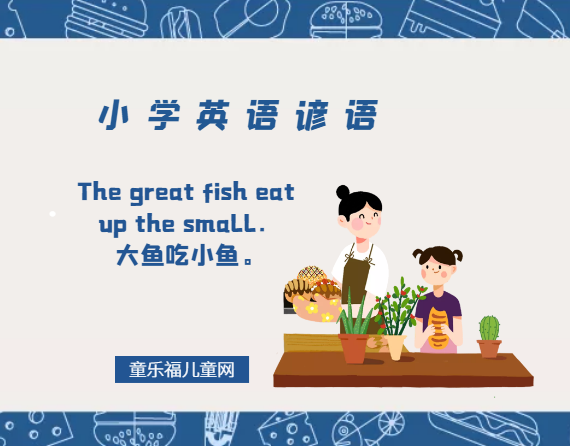
The great fish eat up the small.大鱼吃小鱼。
这条谚语也有写作Big fish eat little fish,正好与中文用的比喻完全相同,中文谚语有时还可接一句:“大鱼吃小鱼,小鱼吃虾米。”就更加生动。此句中eat之后接up,表示吃光之意。
这是以鱼为比喻,揭示人类社会“强凌弱,众暴寡”自相残害的现象,也可以是反映自然界的优胜劣败,弱肉强食。
还有一句谚语,用直叙来说明这现象:
The weakest goes to the wall.
这里goes to the wall是“被推到一边”的意思。
其实在人类社会里,强者与弱者不必对立,而是应该互相依存才是:
If great men would have care of little ones, both would last long.
如果强者能照顾一下弱者,双方都能生存得长久些。
There would be no great ones if there were no little ones.
世上没有弱者,也就根本没有所谓强者。
而且弱者还对强者有好处,可不要看小他们:
Willows are weak, yet they bind other wood.
杨柳是柔弱的,但却能把木材束起来。



